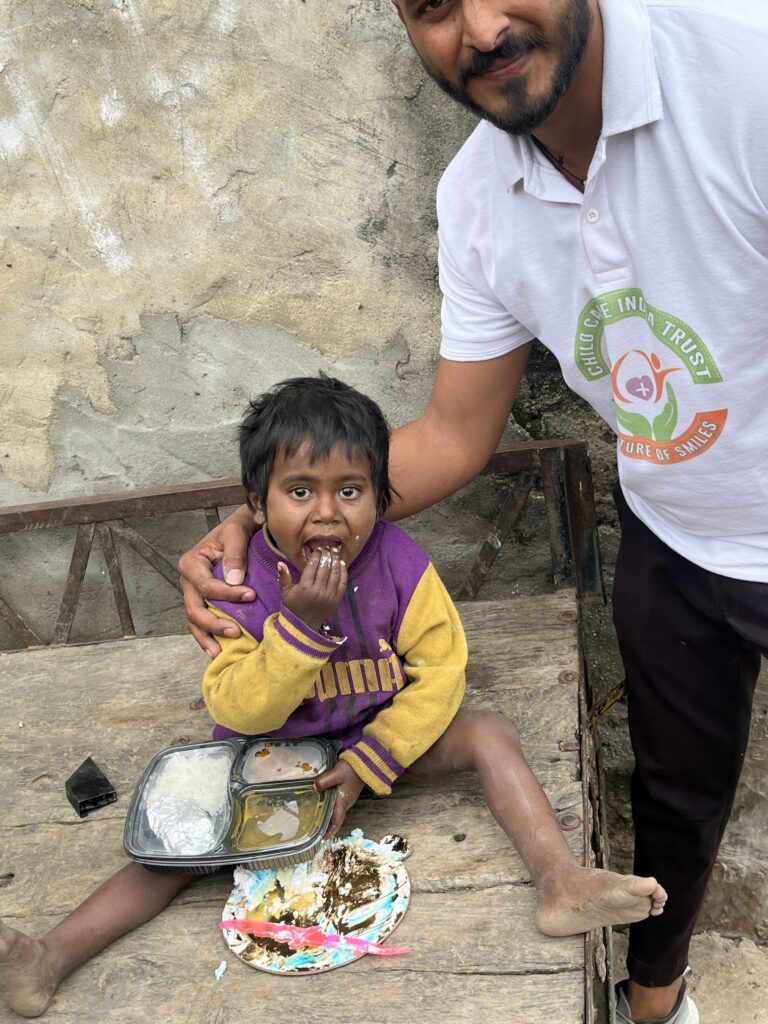The Role of NGOs in Social Development and Community Welfare
Introduction
Non-governmental organizations (NGOs) play a crucial role in fostering social development, advocating for human rights, and supporting vulnerable communities worldwide. With their non-profit nature and humanitarian approach, NGOs work towards addressing global challenges such as poverty, education, healthcare, environmental conservation, and human rights violations. This article explores the significant impact of NGOs, their functions, and how they contribute to creating a more equitable society.

What is an NGO?

An NGO (Childcare India Trust) is an independent entity that operates without government control, primarily focusing on humanitarian and social objectives. These organizations rely on donations, grants, and voluntary contributions to fund their initiatives. NGOs function at local, national, and international levels to address societal issues and implement sustainable development projects.
Types of NGOs and Their Functions
1. Human Rights NGOs
Human rights NGOs work to protect fundamental freedoms and advocate for justice. They raise awareness, document violations, and provide legal aid to marginalized communities. Examples include Amnesty International and Human Rights Watch.
2. Environmental NGOs
These organizations focus on climate change, conservation, and sustainable development. They engage in reforestation projects, wildlife conservation, and policy advocacy to mitigate environmental degradation. Notable examples include Greenpeace and the World Wildlife Fund (WWF).
3. Educational NGOs
Education-focused NGOs aim to provide quality education to underprivileged children, promote literacy, and offer scholarships. They also work to bridge the education gap in rural and underdeveloped regions. Organizations like Room to Read and Pratham are pioneers in this field.
4. Healthcare NGOs
Healthcare NGOs strive to improve public health services, provide free medical aid, and combat diseases such as HIV/AIDS, tuberculosis, and malaria. Prominent organizations include Doctors Without Borders and The Red Cross.
5. Women Empowerment NGOs
Gender equality remains a global challenge, and women-centric NGOs focus on women’s rights, economic empowerment, and protection against gender-based violence. Organizations such as CARE and Women for Women International play a pivotal role in this sector.
6. Disaster Relief NGOs
When natural disasters strike, NGOs step in to provide emergency aid, food, shelter, and rehabilitation services. Groups like Oxfam and the International Federation of Red Cross and Red Crescent Societies (IFRC) lead disaster response efforts worldwide.
The Impact of NGOs on Society
1. Poverty Alleviation
NGOs actively work to reduce poverty by implementing economic development programs, microfinance initiatives, and vocational training for underprivileged communities.
2. Education for All
By establishing schools, providing educational materials, and offering scholarships, NGOs bridge the literacy gap and empower the youth with knowledge and skills.
3. Healthcare Advancements
From running free medical camps to distributing vaccines and offering maternal healthcare services, NGOs significantly contribute to improving public health outcomes.
4. Advocacy and Policy Influence
NGOs serve as watchdogs by influencing governmental policies, advocating for human rights, and pressuring authorities to enact progressive laws.
5. Community Development
Through grassroots projects, NGOs help communities develop sustainable agriculture, clean water access, and improved sanitation facilities.
Challenges Faced by NGOs
1. Funding Constraints
Many NGOs struggle with insufficient funding due to reliance on donations and grants, which often fluctuate based on economic conditions.
2. Governmental Restrictions
In certain countries, NGOs face bureaucratic hurdles and legal restrictions, limiting their operations and impact.
3. Operational Challenges
Managing large-scale humanitarian projects requires skilled personnel, strategic planning, and adequate resources, which can be difficult to sustain.
4. Transparency and Accountability Issues
Ensuring financial transparency and maintaining donor trust are critical challenges for NGOs, as mismanagement can lead to reduced credibility.
How to Support NGOs
1. Donations and Fundraising
Contributing financially helps NGOs implement projects effectively. Many organizations offer one-time donations or recurring sponsorship programs.
2. Volunteering
Engaging in NGO activities through volunteering provides hands-on support and fosters social responsibility.
3. Spreading Awareness
Using social media and networking platforms to raise awareness about NGO initiatives helps gain support and influence policies.
4. Corporate Partnerships
Businesses can collaborate with NGOs through Corporate Social Responsibility (CSR) programs, providing financial and logistical support for various initiatives.
Conclusion
NGOs play an indispensable role in shaping a better world by addressing critical social, environmental, and humanitarian issues. Their efforts in poverty alleviation, healthcare, education, and human rights advocacy contribute significantly to global progress. Supporting NGOs through donations, volunteering, and advocacy can strengthen their impact and help build a more equitable society.
Impact of NGOs
Successful NGOs like UNICEF, the Red Cross, and Greenpeace have positively influenced global policies, disaster relief efforts, and environmental protection.
Challenges Faced by NGOs
Despite their good intentions, NGOs face:
- Financial Constraints: Limited funds and dependency on donations.
- Political interference: government regulations affecting operations.
- Transparency Issues: Ensuring accountability to maintain public trust.
How to Support NGOs
You can help NGOs by:
- Donating: contributing money or resources.
- Volunteering: Offering time and expertise.
- Raising Awareness: Spreading their message through social media and campaigns.
Future of NGOs
The landscape of NGOs is evolving with technological advancements and digital innovations.
- Technology Integration: Many NGOs are utilizing artificial intelligence and blockchain for transparency in fund management.
- Digital Fundraising: Online campaigns and crowdfunding have made it easier for NGOs to reach donors worldwide.
- Collaborative Efforts: NGOs are forming alliances with corporations and governments for long-term sustainable impact.
FAQs
- What is the main purpose of an NGOs?
NGOs work to address social, environmental, and humanitarian issues independently of government influence. - How do NGOs get funding?
They receive funds from donations, grants, fundraising events, and government programs. - Can anyone start an NGOs?
Yes, but legal registration and a clear mission statement are necessary. - What are some well-known NGOs?
Examples include UNICEF, WWF, Amnesty International, and the Red Cross. - How can I contribute to an NGO?
You can donate money, volunteer, or help spread awareness about their cause.

